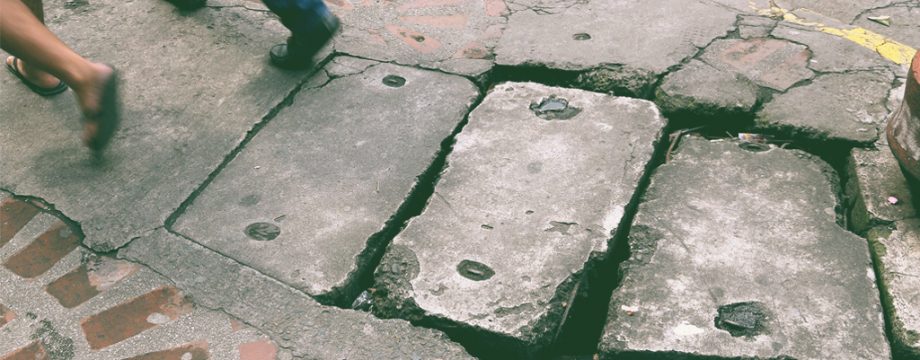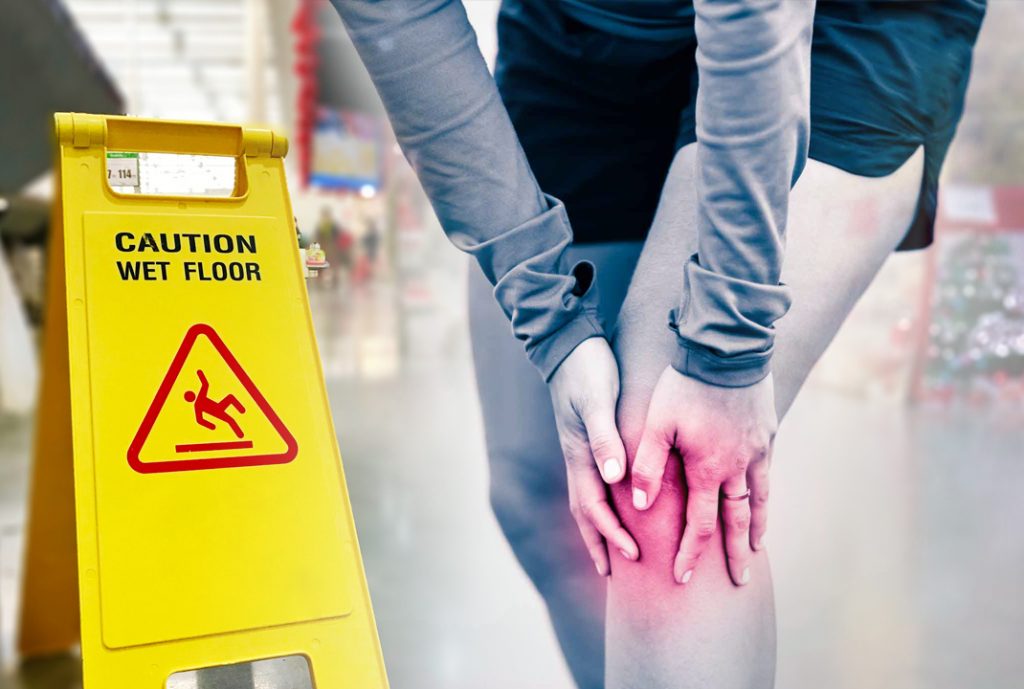
If you or a loved one has been hurt or injured by no fault of your own, you may have a personal injury case. If the injury or harm was due to the failure or negligence of a property owner to maintain a safe environment for visitors, you may have a premises liability case.
 The experienced attorneys at The Floyd Law Firm are here to help you get answers. We make ourselves available to assist those who have been hurt because of dangerous public or privately-owned settings. Premises liability situations may include falls on surfaces, objects or debris, broken stairs, slippery floors, sharp objects on a property, and other issues of poor maintenance. Inadequate lighting, a lack of upkeep, and negligent security can lead to harmful dangers on one’s property.
The experienced attorneys at The Floyd Law Firm are here to help you get answers. We make ourselves available to assist those who have been hurt because of dangerous public or privately-owned settings. Premises liability situations may include falls on surfaces, objects or debris, broken stairs, slippery floors, sharp objects on a property, and other issues of poor maintenance. Inadequate lighting, a lack of upkeep, and negligent security can lead to harmful dangers on one’s property.
Property owners are the most responsible when it comes to a premises liability lawsuit. Any damages that are caused and injuries sustained – whether accidental or not – are to be taken very seriously. All reasonable efforts must be taken to keep a property safe for those who visit or use services at any entity’s location. States have laws that require owners to maintain a safe environment for visitors, especially business property owners.
There are varying regulations and rules that individual states follow as it relates to who might be able to recover costs or liability, and under what conditions. Certain states may have clauses about the status of an individual that visits a property in order to determine whether or not liability is appropriate to the case. These statuses may include separating the visitors into categories of Licensee, Invitee, or Trespasser.
For premises liability concerns, a licensee is basically a person who happens to be at or on the property owned by someone else – despite the fact that the property may not be open or accessible to the general public and is allowed there by the owner of the property. This could describe an employee, a contractor doing work, a utility worker, a cleaning person or caretaker, and so on.
An individual who has been invited to a property, building, or land by the owner as a friend, family member, or member of the public – there to tour or shop for goods – or someone who enters the property for the purpose of other business dealings or commerce. An invitee may visit a person’s home or a business such as a museum, park, bank, hotel, store, restaurant, or amusement park.
Classified either as discovered or undiscovered, a trespasser is considered as an individual who steps on another’s property, or overstays the time permitted without permission of the property owner – or without authority to do so. Even an invited guest can become a trespasser if they fail to leave the property after being ordered to do so by the owner.
For licensees and invitees, an invitation to visit gives an implied idea that one is safe to be in the building or on the property, so a duty of care is also implied. But for liability evaluation, a trespasser who is in or on a property without a right to be, may not be able to seek any recovery were they to get hurt. The property owner should refrain from intentionally trying to harm the trespasser, but in some instances, an owner is required to give or post reasonable warnings of dangers that may not be readily known to trespassers. An exception to this standard may relate to children as trespassers – children who may be curious or captivated by a cute puppy, a colorful ball, or other “attractive nuisance” such as a sparkling swimming pool on a hot day.
Property owners and occupants generally have the duty to keep their property reasonably safe and should regularly inspect the area for dangerous items or conditions. Dangerous areas need to be repaired, or warning signs posted, so as to help prevent visitors from any harm. Property owners who fail this duty, and fail to warn visitors of danger, may be held liable for injuries to visitors as a result.
The majority of states adhere to principles of comparative fault when it comes to premises liability lawsuits. Whereas a visitor to a property also has the duty to use reasonable care to remain safe, this means that an injured individual who may be found partially or fully at fault for what happened cannot recover damages due to a dangerous property condition.
Elements of any premises liability case can vary from state to state, however, the plaintiff, as the injured person, needs to be able to prove by South Carolina law that they were harmed and that the defendant property owner was likely at fault for the harm caused.
If you have been harmed while visiting or doing business at someone’s building, premises, or property – it’s important to keep a detailed account of what happened.
Individuals, businesses, organizations, corporations, and even the local, state, or federal government may be sued as a result of injuries caused by dangerous property conditions. You may file suit for compensation to cover any financial losses that resulted from your lost income, your medical treatment, and your pain and suffering. Seeking professional legal guidance is your first and most important step towards preparing a valid premises liability claim
When you become aware of any negligent or harmful conditions on a property, it is best to share your concerns with them. If you have experienced an accident such as a slip and fall at a public location or a business, try to write down the names and contact information of any witnesses that may have seen what happened. Try to take pictures – or have someone help you take pictures – of the area where you were injured, and document what happened so an incident report can be made with the owner of the premises or their representative on site.
At The Floyd Law Firm PC, we are committed to helping those who have been injured by no fault of their own. We know the challenges that people face in such situations and we understand how to secure the compensation they need to help get them through. Depending on the severity of the injuries, the client may be facing extensive and costly medical care – as well as substantial time off from work. The medical bills and lost wages can combine to take a toll on even the most financially stable of households. In the very worst of cases, an injury could lead to a wrongful death suit.